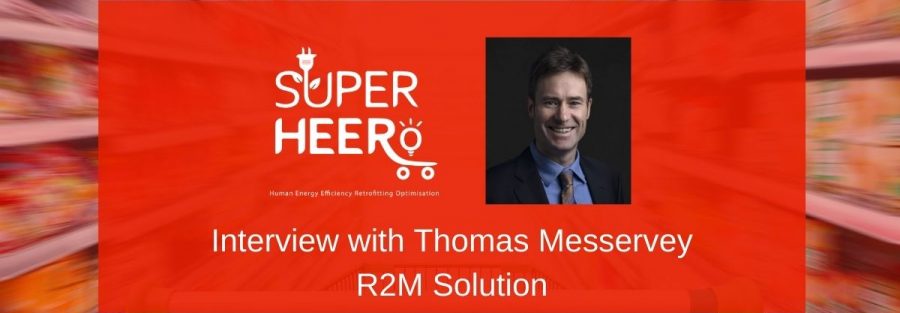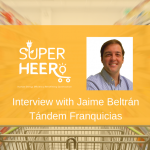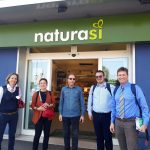We expect that energy efficiency strategies would unlock potential energy savings over 40%. Just think of how much energy would be saved if we replicate this in all the supermarkets in Europe and across the world. – Interview with R2M Solution
Thomas Messervey, from R2M Solution, is the SUPER-HEERO coordinator. His role involves not only leading and arranging all the administrative tasks, as well as coordinating all the partners tasks, but also ensuring that all the work is aligned and the results are maximized.
What are your expectations from the SUPER-HEERO project?
We believe that this project is a great opportunity to enable supermarkets to achieve energy efficiency and we expect to replicate the model we will develop in other sectors which struggle to attract private finance. The impact will not only be at environmental level but will also create more awareness in customers and develop small communities focussed on how to reduce energy consumption. The implementation in the two case studies included in the project will enable us to monitor and assess the model implemented, providing real examples of what can be achieved through co-operation and technology deployment. We also expect that we can help supermarkets think different and open relationships with supermarkets in our local areas of operation.
What is the main role of R2M Solution in SUPER-HEERO?
R2M Solution is the project coordinator of SUPER-HEERO. Together with our partners we are working on new business models built on innovative financing schemes that incentivize supermarkets to work collectively with their communities on energy efficiency and the climate targets associated with that. We want to see the intersection of loyalty programs, innovative energy efficiency technologies, crowdfunding, local energy communities and renewables in the supermarket space.
Can you talk a bit about the digital smart meters and energy management platform that you are bringing into the project? What would be the main benefits of using them??
In most cases, smart energy meters send data through power line communication. That means the data goes over the distribution network and the implication is that the data is not available in real time. One must wait for the network operator to send that data to the energy supplier who then bills the client and this billing cycle is often every 60 days. This prohibits everything one can do with real time data. The digital smart meter we bring to the project communicates redundantly over multiple wireless networks, is fiscally certified and is integrated with blockchain software. This does several things, it provides real time data access, it can be used for billing, and it enables energy trading or energy sharing within a local energy community. For example, if the solar system on a supermarket roof distributes 60% of its energy to the supermarket and 40% to the condominium across the street as part of a local energy community, our meter makes possible the measurements and associated billing for such transactions. This incentivizes distributed generation, greater use of renewable energy technologies, and increased participation in local energy communities. Local renewable energy doesn’t have to travel over distribution networks (losses) and isn’t produced by fossil fuels (sustainability).
What do you think will be the main outcomes of the SUPER-HEERO project?
At the macro-level, achieving energy efficiency and consumption reduction through the new innovative business financing schemes developed by the project in a sector like supermarkets can have a huge impact. We expect that energy efficiency strategies would unlock potential energy savings over 40%. Just think of how much energy would be saved if we replicate this in all the supermarkets in Europe and across the world.
For our business, we see Super Heero as a perfect example of what R2M set out to do. To bring innovation to buildings and communities for a more sustainable planet. The most important outcome for R2M in this project will be relationships with supermarket energy managers with whom we can develop win-win solutions for the supermarket, its local communities, and the climate.



